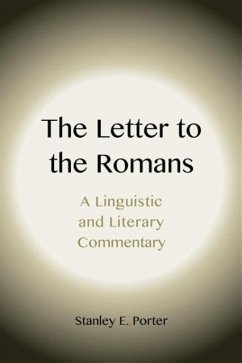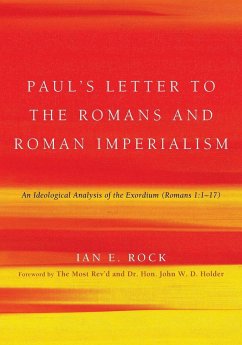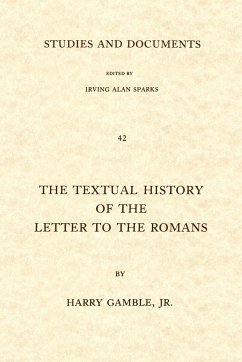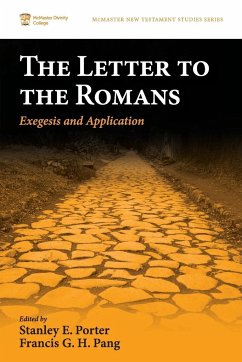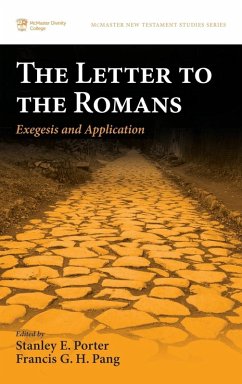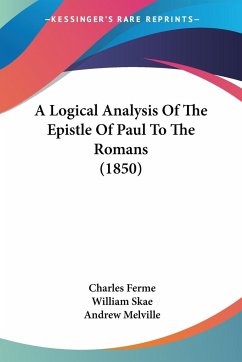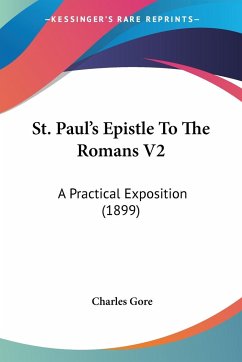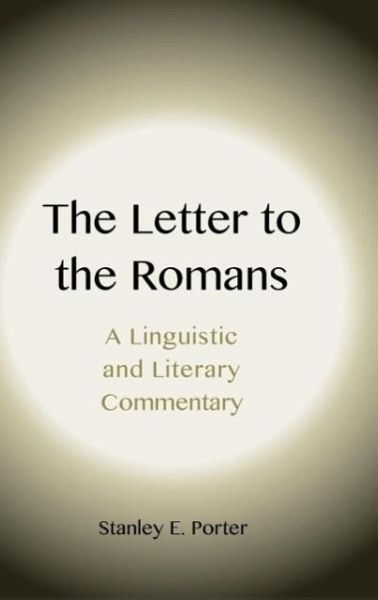
The Letter to the Romans
A Linguistic and Literary Commentary

PAYBACK Punkte
38 °P sammeln!
This substantial new commentary, expounding the letter paragraph by paragraph, is distinctive among commentaries on Romans in foregrounding a linguistic and literary approach. To comprehend the letter, Porter shows, we must always be aware of the letter-writing and linguistically based rhetorical conventions its author was deploying. ¿The commentary is organized around the five-part epistolary structure that Paul developed for this fundamental letter, a structure that gives shape to its logically unfolding theological argument. Recognizing this structure is vital for interpreting the traditio...
This substantial new commentary, expounding the letter paragraph by paragraph, is distinctive among commentaries on Romans in foregrounding a linguistic and literary approach. To comprehend the letter, Porter shows, we must always be aware of the letter-writing and linguistically based rhetorical conventions its author was deploying. ¿The commentary is organized around the five-part epistolary structure that Paul developed for this fundamental letter, a structure that gives shape to its logically unfolding theological argument. Recognizing this structure is vital for interpreting the traditional sections of the body of the letter, as well as for understanding the placement of the problematic chapters 9-11 within Paul's thought. ¿One of the primary means of development Paul uses within the letter is dialogical interaction-what the ancients called diatribe-as a linguistic device for shaping and presenting his argument. Through the insistent questions and responses of the interaction, Paul opens up the major theological issues of the letter-human depravity, sin and works, justification and righteousness, reconciliation, life in the Spirit, and the role of Israel-and shapes the way his addressees should respond to them.



